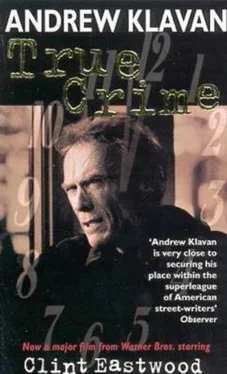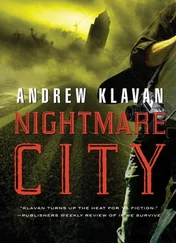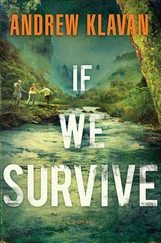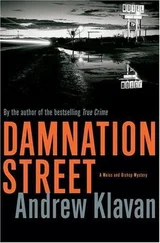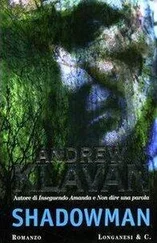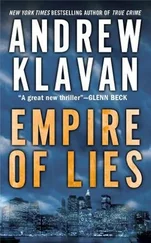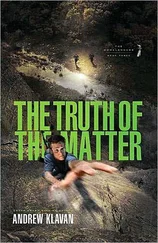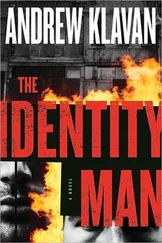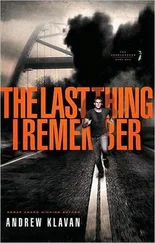Andrew Klavan - True Crime
Здесь есть возможность читать онлайн «Andrew Klavan - True Crime» весь текст электронной книги совершенно бесплатно (целиком полную версию без сокращений). В некоторых случаях можно слушать аудио, скачать через торрент в формате fb2 и присутствует краткое содержание. Жанр: Криминальный детектив, на английском языке. Описание произведения, (предисловие) а так же отзывы посетителей доступны на портале библиотеки ЛибКат.
- Название:True Crime
- Автор:
- Жанр:
- Год:неизвестен
- ISBN:нет данных
- Рейтинг книги:4 / 5. Голосов: 1
-
Избранное:Добавить в избранное
- Отзывы:
-
Ваша оценка:
- 80
- 1
- 2
- 3
- 4
- 5
True Crime: краткое содержание, описание и аннотация
Предлагаем к чтению аннотацию, описание, краткое содержание или предисловие (зависит от того, что написал сам автор книги «True Crime»). Если вы не нашли необходимую информацию о книге — напишите в комментариях, мы постараемся отыскать её.
True Crime — читать онлайн бесплатно полную книгу (весь текст) целиком
Ниже представлен текст книги, разбитый по страницам. Система сохранения места последней прочитанной страницы, позволяет с удобством читать онлайн бесплатно книгу «True Crime», без необходимости каждый раз заново искать на чём Вы остановились. Поставьте закладку, и сможете в любой момент перейти на страницу, на которой закончили чтение.
Интервал:
Закладка:
“There you go,” he said.
Gail took it from him with a trembling hand. She was still sniffling; the tears still ran. But her hysteria had ceased on the instant. “Thank you,” she said sulkily.
Bonnie took a deep breath, thinking, Thank you, God, thank you .
Then Gail frowned up at her, a deep frown. She narrowed her eyes making a bitchy, angry look she had learned from the movies. “And it isn’t over nothing, Mommy,” she said darkly. “Daddy likes my pictures.”
Gail nodded slightly. “I know he does, sweetheart. He loves your pictures,” she managed to say. She hadn’t the energy to feel guilty anymore-for the things she thought, for the things Gail heard even when she managed not to speak them. She could not even apologize to God anymore. She was just too miserable. It was just too big a feeling for her even to hope for relief. She was only dully grateful that she had managed to keep her temper yet again. And that they had found the crayon. “I know he does,” she repeated softly. “Put your shoes on now, so we can go.”
Flowers was climbing slowly to his feet. He stood next to Bonnie. Singing quietly to herself, Gail moved to the far wall to fetch her shoes. The two adults watched her.
Flowers’s hand encircled Bonnie’s elbow. He squeezed her arm. “Christ is here, Bonnie,” he murmured, almost whispered. “Even in this room. Hold on to that.”
She glanced at him quickly, almost angrily. She stared at the dark chocolate color of his cheeks, the flat Negro nose, the wide nostrils, the lips thick underneath. Who was this? she wondered. Why was he here? What did he have to do with her? Oh, she supposed she believed him-about Christ-about His being here. Of course He was here.
She swallowed, shifting her angry gaze. Christ was here, all right, she thought. It was she, Bonnie, who was elsewhere. She was endless distances elsewhere. She was separated by black expanses from Christ and Flowers and her own child and all the strangers around her, and everyone.
Everyone except Frank.
2
By the time the Tempo skidded to the curb before my apartment house, I had dismissed the Potato Chip Factor as ridiculous. I hadn’t even read the witness’s testimony. Maybe he’d been standing somewhere else. And the store must’ve changed in six years. And maybe they were low on potato chips that day. And maybe a million things that I wasn’t going to take time to check out when I had to be nice to my wife and take my son to the goddamned zoo. It wasn’t as if I thought Frank Beachum was innocent, after all. He wasn’t innocent, I was sure of that. He shot that girl; I didn’t doubt it for a minute. I’ve covered a lot of arrests and a lot of courtrooms, and the sad old truth is that nine hundred and ninety-nine of every thousand people who come to trial are guilty as hell. Because the cops arrest criminals, that’s why. If it’s a drug crime, they bust a dealer; if a wife’s dead and her husband’s a felon, they haul him in. They get bank robbers for bank robberies, and gang members for drive-by shootings. They may not be Hercule Poirot, but the cops have seen every crime ever committed and they know who the players are and they’re right ninety-nine percent of the time-about as often as reporters who play at being cops are wrong. Frank Beachum was an angry, violent man and Amy Wilson owed him fifty dollars and he shot her for it. Potato chips, my ass.
I killed the Tempo’s engine and listened to its death rattle. I stepped out into the street and slammed the door. I was annoyed with myself. I knew what I was doing with all this potato chip business. All this malarkey about why-didn’t-Nancy-Larson-hear-the-shots. It didn’t take a psychiatrist to see how my mind was working. I was looking desperately for a big score, a big story-so I could make up for the fact that I’d cheated on my wife again. And gotten caught again. And was probably going to lose her and my son-and my job too just as I did in New York. I’d been assigned a human interest sidebar on a condemned man and I was trying to transform it into a last-minute rescue of an innocent from the jaws of death. So that I’d be a hero. So that Bob couldn’t fire me. So that Barbara wouldn’t divorce me and Davy would think I was neat.
Potato chips! I stalked around the front of the car and headed up the walk.
My building was on the corner, a glowering pile of acid-blackened brick with a columned portico thrust out aggressively onto the lawn. Broad-branched maples flanked it, and the rattle of the cicadas in the leaves laced the hot air. Our place was on the second floor. As I moved toward the door, I glanced up at it and saw Barbara at the bedroom window.
She had pushed a white curtain back and was watching me through it, watching through the maple leaves. Our eyes met. She did not smile. She let the curtain fall closed.
I was twenty minutes late.
I sighed, went in and headed up the stairs.
She opened the apartment door just as I reached the landing. She stood without saying a word, showing me the tight mouth and the deep blue eyes. As I stood at the other end of the hall, I raised my hands in apology. She did not react.
I sighed and headed toward her.
“Sorry,” I said. “I got held up.”
She stiffened. I kissed her, catching the right quarter of her compressed lips. Our eyes met again, and then she turned away.
She had been a beauty when I married her. She was beautiful still. Small and slender and well formed. With strands of silver in her short black hair and the first worry-lines of motherhood softening what had been a haughty, patrician face. She was a New Yorker, Manhattan-born; Upper East Side and the right schools. Her parents had been divorced when she was ten, but her father was a big-wheel investment banker and always supplied her with plenty of cash. When I met her, five years ago, she was running a state-funded job training program for single mothers. Managing a staff of about a dozen people-suited-up, fiery women; mild, reedy, benevolent men-most of them like her, I guess, with bright ideas and good intentions and trust funds. She had had to give that up when we moved here to St. Louis.
I don’t suppose I loved her anymore. I’m not really sure I ever did. I think I just thought I was supposed to, to love somebody, to make something work right in my life. And she was smart and kindly and hardworking-as well as humorless and severe-and I was the first man who ever really reached her in bed, which made me proud. I felt I should’ve been able to love her, I still felt that way. She was a worthwhile person, and I didn’t want to lose her, even now. And the boy. If I loved anyone, I loved the boy. I didn’t want to lose Davy.
He was sitting in front of the TV in the living room. As soon as I came through the door, he looked up and saw me. His round, chubby face blossomed in a wreath of smiles. Quickly, he worked his two-year-old body off the floor and climbed to his feet. “Are we … are we … are we …” he cried, too excited to think of the words. He ran to me and jumped around, throwing his arms up and down.
“Davy!” I said. “Davy Crockett, King of the Wild Frontier!”
“Are we … we are going … we are going to … to the zoo!” he finally managed to shout.
I reached out and rumpled his yellow hair. “Hooray,” I said.
“A hippopotamus is there.”
“No. Really?”
“Yeah! Yeah, really.”
“Oh boy,” I said, “I can’t wait.”
He reached out and took my hand in both of his. “We’ll go now,” he said.
“Don’t you want to put your shoes on first?” “Oh yeah.”
He let me go and ran crazily around the room, hoping to fall over his shoes, I guess. I glanced up and saw Barbara watching him. With that melted expression, that wry and dreamy smile that she reserved for Davy alone.
Читать дальшеИнтервал:
Закладка:
Похожие книги на «True Crime»
Представляем Вашему вниманию похожие книги на «True Crime» списком для выбора. Мы отобрали схожую по названию и смыслу литературу в надежде предоставить читателям больше вариантов отыскать новые, интересные, ещё непрочитанные произведения.
Обсуждение, отзывы о книге «True Crime» и просто собственные мнения читателей. Оставьте ваши комментарии, напишите, что Вы думаете о произведении, его смысле или главных героях. Укажите что конкретно понравилось, а что нет, и почему Вы так считаете.
